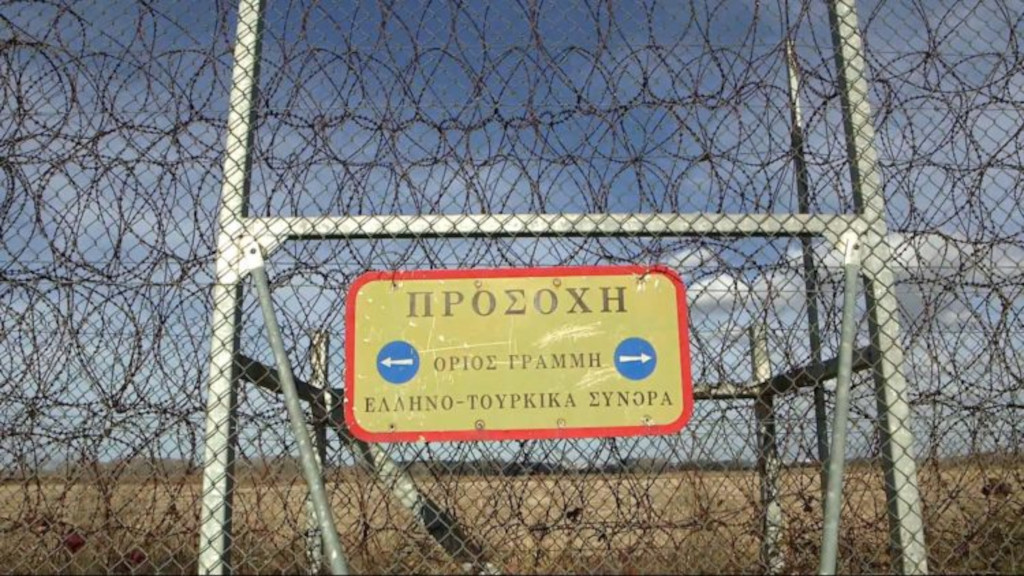Speaking to the Stockholm Center for Freedom, S.E. said after crossing the Evros River, the land border between Turkey and Greece, in a leaky boat, they were robbed and beaten in Greece by an armed and masked group and pushed back to Turkey. S.E. and his wife were detained upon their arrival, and she was sent to prison to serve a sentence that had been suspended after giving birth to her son.
S.E. himself was convicted of links to the Gülen movement based on anonymous witness testimony and served more than five years in prison after a coup attempt on July 15, 2016.
Turkish President Recep Tayyip Erdoğan has been targeting followers of the Gülen movement, inspired by Turkish Muslim cleric Fethullah Gülen, since the corruption investigations of December 17-25, 2013, which implicated then-prime minister Erdoğan, his family members and his inner circle.
Dismissing the investigations as a Gülenist coup and conspiracy against his government, Erdoğan designated the movement as a terrorist organization and began to target its members. He intensified the crackdown on the movement following the 2016 abortive putsch that he accused Gülen of masterminding. Gülen and the movement strongly deny involvement in the coup attempt or any terrorist activity.
S.E.’s wife, who was also sentenced to seven and a half years in prison for working at a student dormitory in İzmir that the government subsequently shuttered over its alleged links to the Gülen movement, was six months’ pregnant when she was arrested in 2016. She remained in prison until her son was 10 months old but was released under a law governing the incarceration of women who are pregnant or have just given birth.
According to the Turkish Penal Code’s Article 5275, “the execution of the prison sentence is delayed for women who are pregnant or have given birth within the last year and a half.”
Many people who were facing arrest for alleged membership in the Gülen movement and wanted to flee the country to avoid the post-coup crackdown took dangerous journeys across the Evros River or the Aegean Sea.
The family decided to leave Turkey after S.E was released in September since they were afraid their son would grow up with only one parent in the event of his wife’s rearrest. S.E. said they started their journey to Greece on October 8.
The family hid in the woods until morning along with other migrants who had been on the boat, which somehow managed to reach the Greek side of the river. However, they were found and captured by the Greek police in the morning. The family, who thought they were going to be taken to a police station, was put in van by the police and their phones were taken from them.
“When we got out of the van, we were greeted by a masked and armed group. While I thought we were at the police station, someone punched me so hard in the eye that I fell to the ground in front of my son, and that was the beginning of the horrible incidents that happened there,” S.E said.
They were put in another truck that was already full of 50-60 men, women and children. After they got in, men pointed guns at them and demanded that they hand over their money and personal belongings. When a Kurdish woman from the group said she had no money on her, they tore her clothes. When some money fell out, they beat her for at least half an hour until she was unconscious.
“When I tried to stop them, they beat me, too,” he said. According to S.E., a female Turkish doctor wanted to help the woman, but the group wouldn’t allow it and beat her as well. “All this happened in front of my 5-year-old son and my wife. My family was terribly traumatized,” he said.
”When we arrived at the banks of the river, they separated us by nationality. They didn’t take our clothes off, but they took our money, our IDs and all other documents. However, the others, Syrians and Afghans, were stripped naked, including their shoes and even socks. They put us on different boats and sent us back to Turkey,” S.E. said.
When the family reached a village on the shore of the Evros River in Edirne, they were arrested and taken into custody, on October 10.
S.E.’s wife was arrested and taken to Edirne Prison to serve her sentence. S.E later took his son and returned to their hometown. ‘’I was not allowed to see my wife before I left,” he said.
Describing his sadness and disappointment, S.E. said he had been married to his wife for seven years but that they had been unable to spend even seven months together because of their imprisonment.
”My wife was detained for the first time in 2016. She was pregnant and gave birth to our son in prison. They stayed in prison until my son was 10 months old. Then I was arrested three days after my wife was released. My son grew up without his father. Now my wife is back in prison. We were on our way to escape a lawless country and build a safe future for our son, but we were pushed back and have to relive the whole nightmare again,” S.E said.
According to S.E., his wife has recently undergone surgery and was sent back to prison without even waiting for her recovery. People who were pushed back from Greece are arrested and subjected to poor prison conditions, S.E. said.
In a previous interview with the Stockholm Center for Freedom, a pushback victim said Greek authorities need to realize that by pushing them back to Turkey, they are sending them to prison.
The United Nations Refugee Agency, members of the European Parliament and human rights watchdogs have repeatedly demanded that Greek authorities investigate such incidents of pushback.
According to Amnesty International, the practice of migrant pushbacks in Greece has become so bad that even people who have applied for asylum and have been in the country for some time are being picked up and deported.
EU Home Affairs Commissioner Ylva Johansson during a visit to Greece in March called on the country to “do more” to investigate the allegations. However, Greek Migration Minister Notis Mitarachi denied Greek authorities’ involvement in any kind of pushback.



